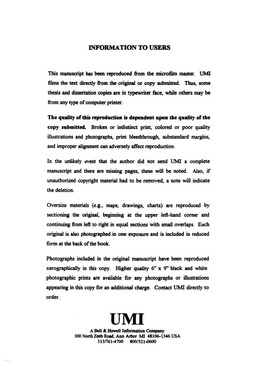| dc.contributor.advisor | Michaelsen, Larry K., | en_US |
| dc.contributor.author | Baker, Diane Faye. | en_US |
| dc.date.accessioned | 2013-08-16T12:29:52Z | |
| dc.date.available | 2013-08-16T12:29:52Z | |
| dc.date.issued | 1997 | en_US |
| dc.identifier.uri | https://hdl.handle.net/11244/5547 | |
| dc.description.abstract | Subjects were students from five undergraduate Principles of Management classes. They were assigned to groups early in the semester and these groups remained intact for the entire semester. Performance, efficacy, goal setting and effort measures were taken at six different points in time. Previous group experience, social desirability bias, locus of control and group potency were also measured. | en_US |
| dc.description.abstract | The relationships among past performance, collective efficacy, goal level and effort found in this study were similar to those found in self efficacy studies. Self efficacy was significantly related to collective efficacy at each time period, although the relationship decreased as group members developed greater trust in the capabilities of other members and in the group process. Collective efficacy was related to past group performance at each time. The goal that individuals had for their group was not an unchanging standard, but varied according to past group performance and beliefs about the group's ability. Higher levels of effort were associated with higher levels of individual goals. Frequently, the highest levels of effort came from subjects who were apparently dissatisfied with their group scores, but continued to believe that their group could achieve high levels of performance. | en_US |
| dc.description.abstract | The purpose of this dissertation was to determine the extent to which members of an ongoing group develop, over time, a shared collective efficacy. In addition, this study examined the relationship among collective efficacy, group performance, self efficacy, individual effort and goal setting. A model of the relationship among performance, efficacy, goals and effort was proposed. | en_US |
| dc.description.abstract | Group members began to agree about the group's ability to perform a task early in the group's development. However, complete agreement did not develop because individual characteristics, such as self efficacy and attitude toward group work, continued to influence beliefs about group performance. | en_US |
| dc.format.extent | xiv, 196 leaves : | en_US |
| dc.subject | Goal (Psychology) | en_US |
| dc.subject | Small groups. | en_US |
| dc.subject | Social psychology. | en_US |
| dc.subject | Business Administration, Management. | en_US |
| dc.title | The formation of collective efficacy and its relationship to self-efficacy, goals, effort and group performance: A longitudinal perspective. | en_US |
| dc.type | Thesis | en_US |
| dc.thesis.degree | Ph.D. | en_US |
| dc.thesis.degreeDiscipline | Michael F. Price College of Business | en_US |
| dc.note | Source: Dissertation Abstracts International, Volume: 58-09, Section: A, page: 3600. | en_US |
| dc.note | Adviser: Larry K. Michaelsen. | en_US |
| ou.identifier | (UMI)AAI9808405 | en_US |
| ou.group | Michael F. Price College of Business | |
